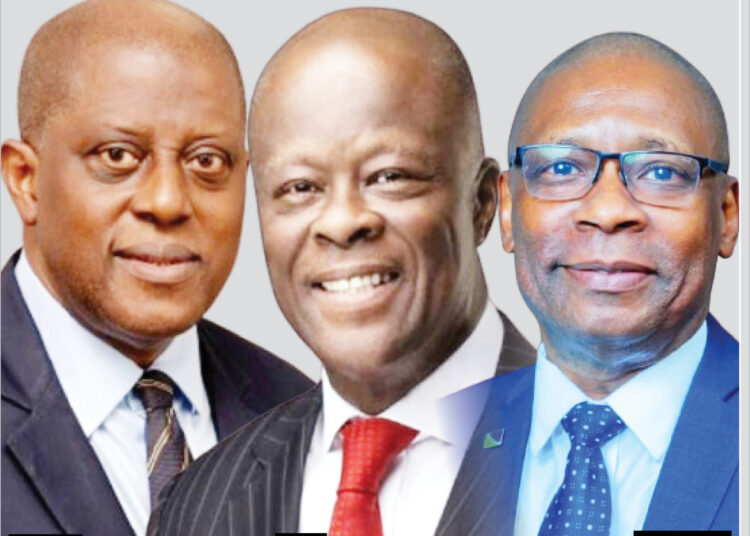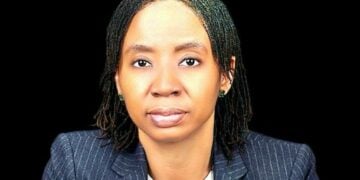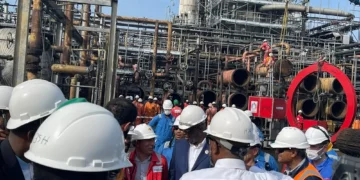Commercial banks and some manufacturing companies in Nigeria have defied all odds to make huge profits and declare impressive dividends for their shareholders in the 2024 financial year.
Findings by LEADERSHIP Sunday showed that despite the economic lull and low purchasing power among
Nigerians during the past year, most banks and companies overcame these obstacles to declare profits and even paid dividends to their shareholders.
Financial experts and shareholders who spoke with our correspondent explained that the organisations’ positive showings arose from forex windfall, as banks found themselves at the surplus end of policy actions and, hence, realised unprecedented FX windfall and huge income from investment in public debt.
For instance, listed cement companies on the Nigerian Exchange Limited posted significant pre-tax profits of N984.432 billion, driven by volume growth and strategic price adjustments.
In the banking sector, Zenith Bank, Guaranty Trust Holding Company, United Bank for Africa, Fidelity Bank, Stanbic IBTC Holdings and Wema Bank posted a combined N3.41 trillion as profit after tax for 2024, up from the N2.1 trillion recorded in the 2023 financial year.
Similarly, 43 listed companies proposed final total dividends of N1.678 trillion to their shareholders, a development the industry players applauded.
In 2024, Nigeria’s business sector encountered many macroeconomic and infrastructural challenges that severely impacted its performance. The industry faced mounting pressure from high inflation, a depreciating naira, rising interest rates, escalating electricity tariffs, record low sales, multiplicity of taxes and levies and worsening insecurity.
Amid these headwinds, companies in key economic sectors reported strong corporate results and rewards for their shareholders.
In his appraisal of the situation, the chief executive officer (CEO) of HighCap Securities Limited, Mr. David Adonri, said, “By providence, banks found themselves at the surplus end of policy actions and hence realised unprecedented FX windfall and huge income from investment in public debt.
“Unfortunately, the market reforms and monetary policy measures that boosted the income of banks sent many import-dependent enterprises into losses. Those that weathered the storm, like cement manufacturers, had their export businesses to balance the equation.”
He noted that notwithstanding the erosion of consumers’ purchasing power due to galloping inflation, the public sector continues to execute capital projects, which consume a lot of building materials. Hence, the profits declared by companies like Dangote Cement and BUA Cement.
“As publicly quoted companies that are rigorously regulated, there is no reason to feel that their profits are not real.
“A good number of Nigerian companies are defying the country’s sluggish economic growth, reporting substantial profits and dividend payouts,” Adonri said.
Chief operating officer of InvestData Consulting Limited Ambrose Omordion admitted that “banks and other Nigerian companies are reporting substantial profits and dividend payouts despite the country’s sluggish economy and weak consumer purchasing power.”
He noted that large corporations, particularly in the banking sector, may be insulated from the broader economic challenges faced by smaller businesses and individuals.
“Banks, for instance, might be generating significant revenue from fees, commissions or investment activities unrelated to their core lending business,” he added.
Meanwhile, the president of the Independent Shareholders Association of Nigeria (ISAN), Moses Igbrude, pointed out that “the dividends being declared by banks are very real as their business operations are service delivery, providing capital to drive the economy.
“Without capital/funds to lubricate the economy, there are no economic activities. With every transaction, there is a cost attached from text messages to interest on loans provided to the customers, and they provide several services to their customers across the country,” he said.
Meanwhile, the president of the Manufacturers Association of Nigeria (MAN), Otunba Francis Meshioye has called for support for the manufacturing sector.
He said, “The outlook for the manufacturing sector in 2025 largely depends on the success of ongoing economic reforms, which include the implementation of the proposed tax reforms, stabilisation of critical macroeconomic indicators, and targeted investments in infrastructure and technology.
“Considering the series of ongoing fiscal and monetary reforms of the present administration, the contraction of the economy is expected to ease and experience some growth this year with stability in the exchange rate regime in 2025,”
Meshioye added that for the sector to regain its momentum, efforts to improve productivity and enhance competitiveness must be sustained, as this is crucial in helping Nigerian manufacturers navigate the challenges they face.
Meshioye said, “There is no gainsaying the fact that manufacturing is pivotal to galvanising and sustaining Nigeria’s economic growth and development. We seek the government’s alignment with our conviction that a win for the manufacturing sector is a win for the economy and, by extension, a better life for the citizenry.”





